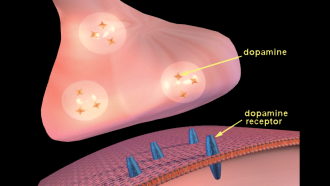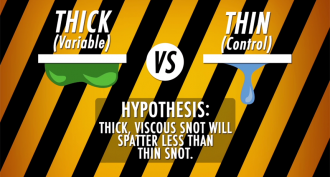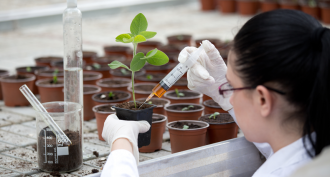
Bethany Brookshire was a longtime staff writer at Science News Explores and is the author of the book Pests: How Humans Create Animal Villains. She has a B.S. in biology and a B.A. in philosophy from The College of William and Mary, and a Ph.D. in physiology and pharmacology from Wake Forest University School of Medicine. She was a 2019-2020 Knight Science Journalism Fellow at MIT, the winner of the Society for Neuroscience Next Generation Award and the Three Quarks Daily Science Writing Award, among others.

All Stories by Bethany Brookshire
-
 Animals
AnimalsScientists Say: Torpor
When an animal enters torpor, its body temperature goes down and so does the amount of energy it uses.
-
 Health & Medicine
Health & MedicineScientists Say: Frostbite
As we get cold, the blood vessels near our skin constrict to keep body heat in. But in the process, they leave some tissues in danger of frostbite.
-
 Health & Medicine
Health & MedicineScientists Say: Hypothermia
Our bodies need to stay warm to function correctly. If our temperature drops too much, we can suffer from hypothermia.
-

These science trips for girls are so cool, they’re glacial
These expeditions are definitely cool. Teen girls are invited to apply to these free trips to explore and study glaciers.
-
 Animals
AnimalsHow birds know what not to tweet
How do birds perfect their pitches? The chemical dopamine spikes when they sing right, and dips when they drop a note, new data show.
-
 Brain
BrainExplainer: What is dopamine?
Dopamine is a chemical messenger that carries signals between brain cells. It also gets blamed for addiction. And a shortage of it gets blamed for symptoms of diseases such as Parkinson’s.
-
 Brain
BrainExplainer: What is neurotransmission?
When brain cells need to pass messages to one another, they use chemicals called neurotransmitters. This sharing of chemical secrets is known as neurotransmission.
-
 Health & Medicine
Health & MedicineScientists Say: Bruxism
Some people clench their jaw when their stressed. People who do it a lot may have bruxism.
-
 Health & Medicine
Health & MedicineSnot Science: A snotty setup
We’ve got a video with a snotty experiment. Now we describe how you can do the same test yourself. Try it!
-
 Health & Medicine
Health & MedicineSnot Science: Results are nothing to sneeze at
We tested a lot of snot, but now we need to figure out what our data mean. Here’s how to group and analyze our data.
-
 Health & Medicine
Health & MedicineSnot Science: Taking mucus to the next level
There’s more to science than just squirting snot. It’s time to place data in context and figure out how to take my boogers to the next level.
-

Smithsonian museum hosts research program for local teens
Want to do some real science? Apply to the National Museum of Natural History’s summer program for hands-on research experience.